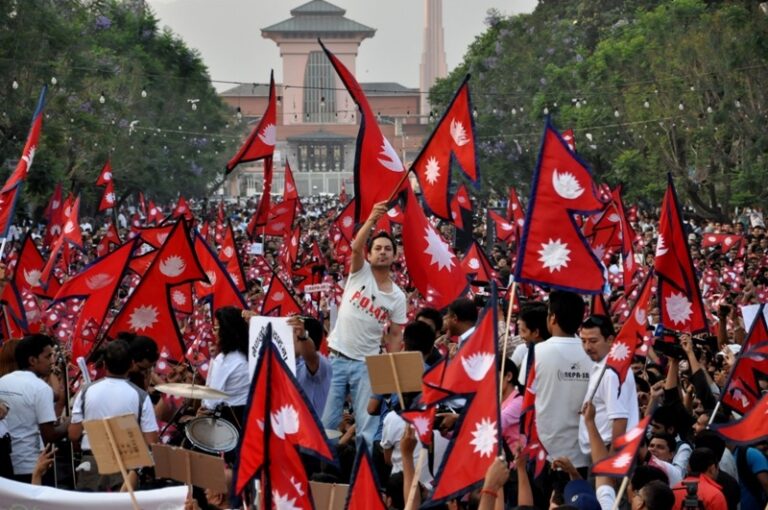Nepal’s aspiration to create a constitution through its elected representatives, a dream cherished for 65 years, was finally fulfilled on Asoj 3, 2072 BS. On this historic day, Nepal’s first President, Ram Baran Yadav, signed and approved the “Constitution of Nepal 2072,” marking a monumental moment in the nation’s history. This achievement represents the culmination of decades of struggle, sacrifice, and dedication by countless Nepalis who worked tirelessly to see their country governed by a constitution reflecting the will of the people.
The “Constitution of Nepal 2072” symbolizes the nation’s transition from an interim constitutional framework to a fully realized federal republic. This constitution not only replaced the interim constitution of Magh 1st, 2063 BS but also restructured Nepal into a federal system, dividing the country into seven provinces and replacing the previous constitutional monarchy with a republican form of government. This restructuring was part of a broader effort to decentralize power and bring governance closer to the people.
The constitution was the product of extensive negotiations and compromises, including a draft signed by eight key political parties, among them the Maoists. This consensus-building effort, though challenging, led to the issuance of a complete constitution that aims to govern Nepal under the rule of law and republican principles.
As Nepal celebrates Constitution Day on Asoj 3rd each year, the day serves as a reminder of the significance of this achievement. The Constitution of Nepal 2072 is a testament to the collective efforts and determination of thousands of Nepalis who contributed their time, energy, and, in many cases, their lives, to see this vision realized. The constitution has brought about a new era for Nepal, setting the country on a path toward democracy, equality, and prosperity.
This year’s Constitution Day, however, is observed in a somewhat different environment. Since the majority government took office following elections at every level, the Federal Republic of Nepal has faced numerous challenges and experienced significant developments. The actions and tendencies of the government have led to a redefinition of constitutional order and democracy in the country. While there have been many obstacles, including issues related to justice, transparency, and governance, the nation has also achieved important milestones.
On this Constitution Day, there is a strong desire among Nepalis for the government to address pressing issues, such as justice for Nirmala Pant and others who have suffered injustices, and to bring greater transparency, particularly in response to the COVID-19 crisis. These are the expectations of a populace that seeks accountability and the effective implementation of the constitution’s principles.
The road to the Constitution of Nepal 2072 was not without its challenges. The first Constituent Assembly, which was tasked with drafting the constitution, failed to deliver a final document within the stipulated time. However, the election of the second Constituent Assembly played a crucial role in overcoming this setback, ultimately leading to the successful proclamation of the constitution. The new constitution not only established a federal republic but also enshrined key rights and principles, including gender equality, by granting equal rights to daughters in patrimonial property, and recognizing Nepal as a secular nation.
Nepal’s sovereignty and independence are sources of immense pride. The country has never been colonized or ruled by a foreign power, a legacy that dates back to the unification efforts of Prithvi Narayan Shah. The Constitution of Nepal 2072 upholds this tradition of sovereignty and independence while ensuring that no Nepali today has to endure discrimination based on gender, religion, caste, class, color, identity, language, or any other basis. The delegation of power to provincial and local governments under the constitution is aimed at fostering development and prosperity across the nation.
The Constitution of the Federal Republic of Nepal 2072 seeks to eliminate all forms of discrimination and oppression that were perpetuated by the previous feudal, autocratic, and centralized state system. It aims to preserve and promote unity, socio-cultural solidarity, tolerance, and harmony among Nepal’s diverse communities, which include various ethnic, linguistic, religious, and cultural groups. The constitution is committed to building an egalitarian society based on the principles of proportional, inclusive, and participatory governance. It seeks to ensure economic equality, prosperity, and social justice by ending class, ethnic, regional, linguistic, religious, and gender discrimination, along with all forms of untouchability.
The announcement of the constitution was a significant moment in global history, as it was approved by a remarkable majority of 90 percent of the Constituent Assembly members. This level of consensus is rare and noteworthy, especially considering that even the most advanced nations have struggled to achieve such agreement on constitutional matters. While disagreements with the constitution are normal and expected, they also present opportunities for further refinement and improvement. It is hoped that this constitution will address the concerns of dissenting citizens and pave the way for new developments and a stronger sense of brotherhood among all Nepalis.
As Nepal moves forward under the framework of the Constitution of Nepal 2072, there is hope that it will continue to instill a deep sense of pride among the Nepali people. The constitution is seen as a mechanism for bringing opportunities and prosperity to the land, uniting all citizens under a shared Nepali identity that transcends political and community divisions. The ultimate goal is to ensure the rule of law, justice for all, and the equal expression of every voice in the nation.



 About Us
About Us
Comment